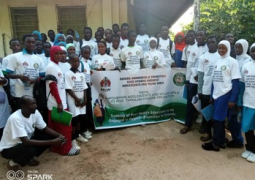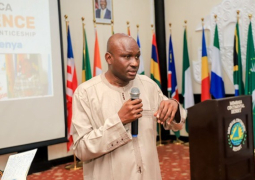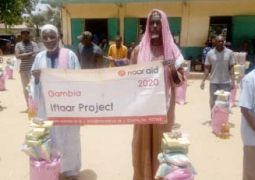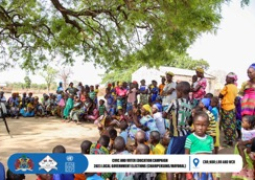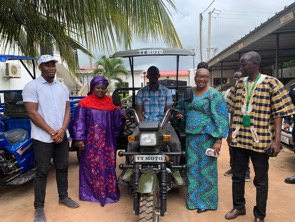
The Government of The Gambia, through the Ministry of Environment, Climate Change and Natural Resources (MECCNAR) received twenty (20) tricycles from the Economic Community of West African States (ECOWAS).
The tricycles are intended to enhance waste collection and contribute to improving sanitation and environmental health across the country.
The provision of the tricycles, as outlined in the Memorandum of Understanding (MoU) between ECOWAS and The Republic of The Gambia, signifies a tangible commitment to addressing waste management challenges and promoting cleaner, healthier environments. The tricycles each has a capacity of 2.5 tons.
Honourable Rohey John Manjang, the minister of Environment, Climate Change and Natural Resources (MECCNAR) said that globally more than 2.5 billion individuals do not have access to waste collection and disposal mechanisms.
She added that it is one thing to talk about the generation of waste and proper management, and another to talk about efficient collection mechanisms and disposal.
Minister Manjang called for the need to be able to reuse generated waste, adding that young people need to be encouraged to venture in waste collection and management because climate change effects them more.
She urged beneficiaries to make best use of the tricycles to build on their socio-economic capacities. She also urged them to give back to the community by collecting street waste.
“Let us join hands and hearts together to clean the country that belongs to all of us,” she appealed.
Her Excellency Miatta Lily French, resident representative of the president of ECOWAS to The Gambia, expressed ECOWAS’s commitment to seeing an environment that we can be proud of.
She added that a clean environment means a healthy population and our general wellbeing. Madam French urged beneficiaries to make good use of the tricycles, saying “To whom much is given, much is expected. If you use your gift wisely you would be given more.”
Dr Dawda Badjie, executive director for the National Environment Agency (NEA) urged beneficiaries to maintain the tricycles well for their sustainability, saying they are selected because they have been involved in enhancing the environment as well as making sure the environment is clean.
He said they have developed a User Policy for beneficiaries to sign based on past experience.
He explained that they distributed 35 tricycles to all municipalities and councils except KMC and Banjul in the past but currently most of the tricycles are either packed as a result of a flat tire or inability to purchase fuel.
“Sometimes we tend to be blaming while we are not doing much. Everybody thinks that somebody has to solve our problems for us. We cry a lot but do not do much,” he stated while calling for attitudinal change.
He further told beneficiaries that they will be monitoring their performance and if they do not honour the agreement then they will withdraw the tricycles from them and give them to people who will make best use of them.


